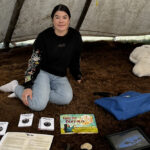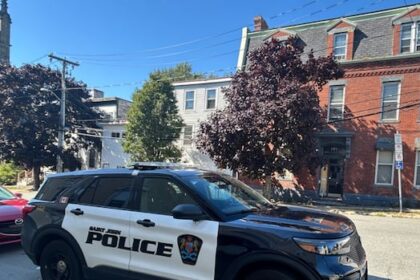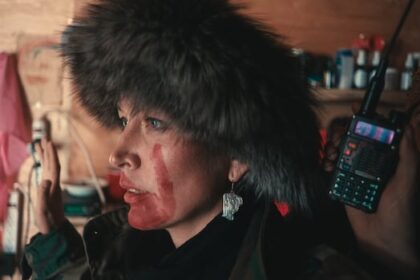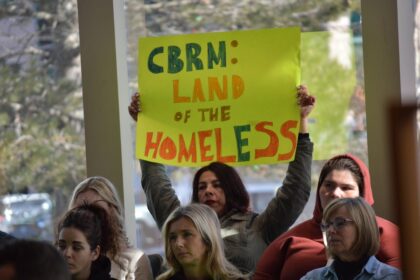At the age of 13, Jennifer Wood remembers being in a car driving up to the Portage La Prairie Indian Residential School with her suitcase and not comprehending what was going on until her father said he would see her at Christmas. At the time, Wood was living in Bunibonibee Cree Nation, nearly 1,000 kilometres northeast of Portage. Wood said it was a real culture shock. She felt lonely and alone but said she decided to take on an attitude of positiveness. “I could’ve easily gone into a world where it wouldn’t have been a good place for me. So, I’ve maintained that to this day. I still maintain having a positive attitude and my residential school experience, I believe, was something that formed and shaped the person that I am today,” Wood says on the season premiere of Face to Face. “That’s the place where I grew up. That’s the place that moulded and shaped me and that’s the place where I had many tears and many fears but I made it work for me and I’m glad I did because a good thing came out of it because that’s where I met my husband.” What started as a close friendship in residential school and a chance encounter in Winnipeg a few years later blossomed into a decades long marriage. Wood and her husband Darcy now have “their own hockey team” will 11 grandchildren and three great-great grandchildren. Sharing her story and experiences is important for Wood who has spent decades working for her fellow survivors with the Assembly of Manitoba Chiefs and the National Centre for Truth and Reconciliation. For decades, Wood also worked as a political strategist and with Manitoba NDP MLA Elijah Harper. “I really like what it takes to do to assemble a team, to trust a team, to find the funding, to run the campaign and then when you see the individual win, it’s a real amazing experience,” she says. “I just have that passion for politics. A lot of people will say things about politicians but when you work in the background and in the background rooms and you see how hard they work, you have a greater appreciation and I wish a lot more people would have that type of attitude towards them.” The National Day for Truth and Reconciliation, says Wood, is a way to honour and acknowledge the contributions survivors have made to Canada despite the legacy of the residential school era. Wood says it’s important for all of Canada to participate. “I hope that it means that they’ll be empathetic, that they’ll have a lot more knowledge. That they’ll be appreciative about the legacy of the residential schools. That they’ll want to participate in our walks, in our talks, in our events moving forward,” says Wood. “I think Canada is looking through a new lens. I think they appreciate Indigenous people far more than ever because of the likes of different ministers that are getting into power, ministerial positions. That schools are participating at a larger scale. That non-Native people are coming forward and walking side by side with us and supporting us.” Residential school survivor on the set of Face to Face. Photo: APTN. The large turnout from the non-Indigenous community for Orange Shirt Day marches and events is just one the reasons Wood believes strides are being made. Schools are also getting much more active with future generations learning about the history of residential schools at a younger age. “Ten years ago, you wouldn’t have seen that. More people are standing with us,” says Wood. She adds the perceived rise in residential school denialism is also nothing new for survivors. “We’ve always faced that our entire life of being a survivor of never being believed. That’s common among survivors and we are so used to it. Well, now we’re not taking that attitude anymore, we’re going to challenge them back and say ‘here’s the facts, this did happen to us,” says Wood. A well known residential school denier recently spoke out front of the National Centre for Truth and Reconciliation in Winnipeg and on the grounds of the University of Winnipeg. “This individual, sadly, that feels that she has to come to the national centre to protest and advocate for that what happened in Canada or across Canada or in Kamloops never happened, that is just so ludicrous. We just look at ourselves and go well we’re used to this. Here they come again,” says Wood. “I feel sad that she’s taking that stance and using that kind of energy to deny such a fact of life, that actually is the truth. Why doesn’t she turn that energy around of what she’s doing and come and learn and sit with us and talk to survivors and go to First Nations and learn how to say hello in our language and talk to survivors that endured abuses. “Why doesn’t she put her energy into that? She’d be a much better person for it.” Continue Reading
More people are standing with us says residential school survivor Jennifer Wood
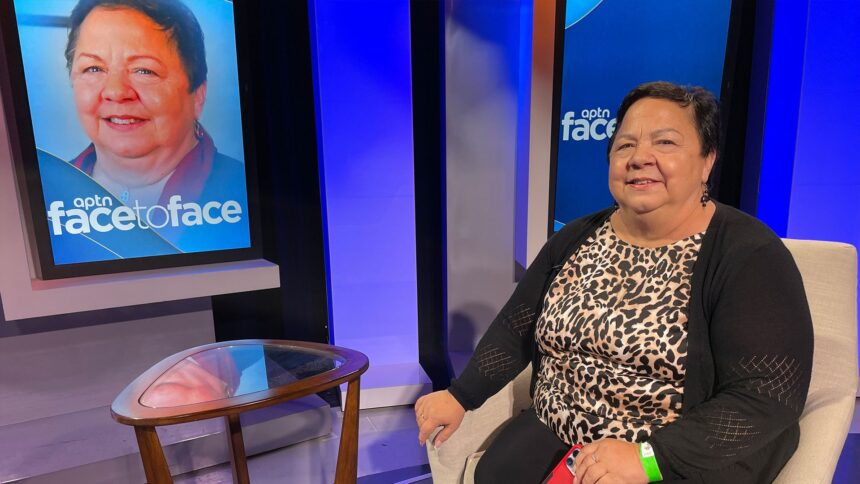
Leave a Comment



